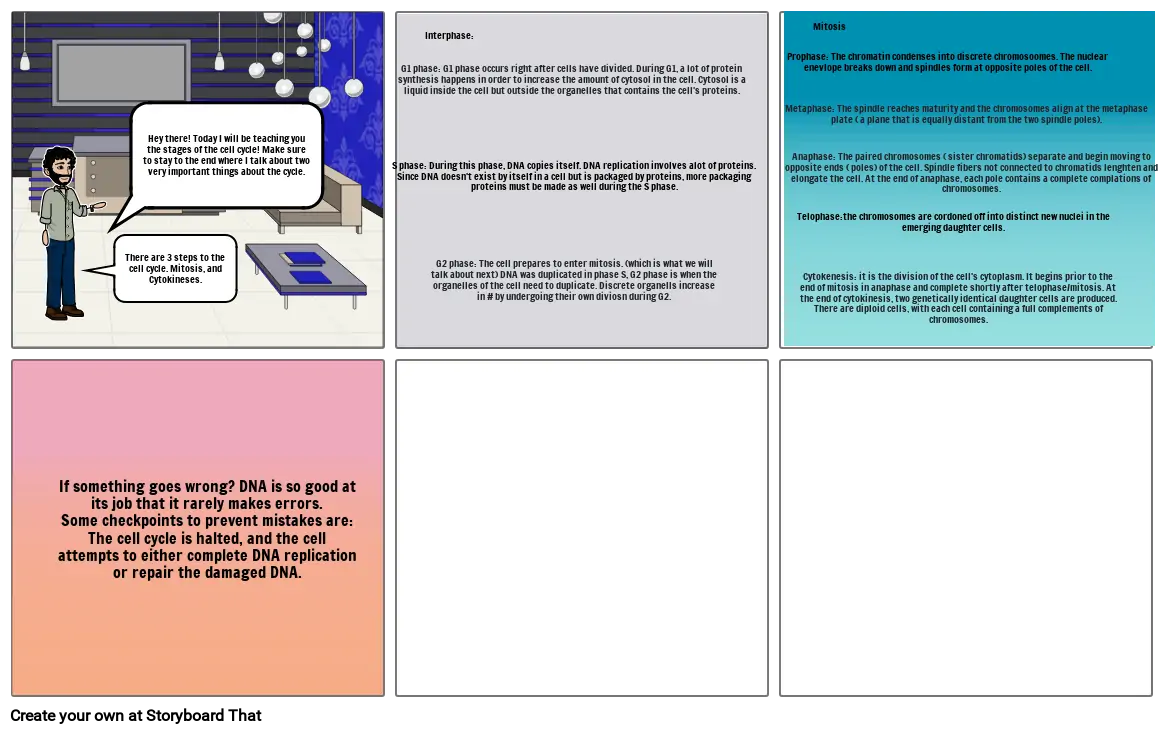Cell Cycle

Текст на Статията
- Пързалка: 1
- Hey there! Today I will be teaching you the stages of the cell cycle! Make sure to stay to the end where I talk about two very important things about the cycle.
- There are 3 steps to the cell cycle. Mitosis, and Cytokineses.
- Пързалка: 2
- Interphase:
- G1 phase: G1 phase occurs right after cells have divided. During G1, a lot of protein synthesis happens in order to increase the amount of cytosol in the cell. Cytosol is a liquid inside the cell but outside the organelles that contains the cell's proteins.
- S phase: During this phase, DNA copies itself. DNA replication involves alot of proteins. Since DNA doesn't exist by itself in a cell but is packaged by proteins, more packaging proteins must be made as well during the S phase.
- G2 phase: The cell prepares to enter mitosis. (which is what we will talk about next) DNA was duplicated in phase S, G2 phase is when the organelles of the cell need to duplicate. Discrete organells increase in # by undergoing their own diviosn during G2.
- Пързалка: 3
- Prophase: The chromatin condenses into discrete chromosoomes. The nuclear enevlope breaks down and spindles form at opposite poles of the cell.
- Mitosis
- Metaphase: The spindle reaches maturity and the chromosomes align at the metaphase plate ( a plane that is equally distant from the two spindle poles).
- Anaphase: The paired chromosomes ( sister chromatids) separate and begin moving to opposite ends ( poles) of the cell. Spindle fibers not connected to chromatids lenghten and elongate the cell. At the end of anaphase, each pole contains a complete complations of chromosomes.
- Telophase:the chromosomes are cordoned off into distinct new nuclei in the emerging daughter cells.
- Cytokenesis: it is the division of the cell's cytoplasm. It begins prior to the end of mitosis in anaphase and complete shortly after telophase/mitosis. At the end of cytokinesis, two genetically identical daughter cells are produced. There are diploid cells, with each cell containing a full complements of chromosomes.
- Пързалка: 4
- If something goes wrong? DNA is so good at its job that it rarely makes errors.Some checkpoints to prevent mistakes are: The cell cycle is halted, and the cell attempts to either complete DNA replication or repair the damaged DNA.
Над 30 милиона създадени разкадровки
Без Изтегляния, без Кредитна Карта и без Регистрация, за да Опитате!
